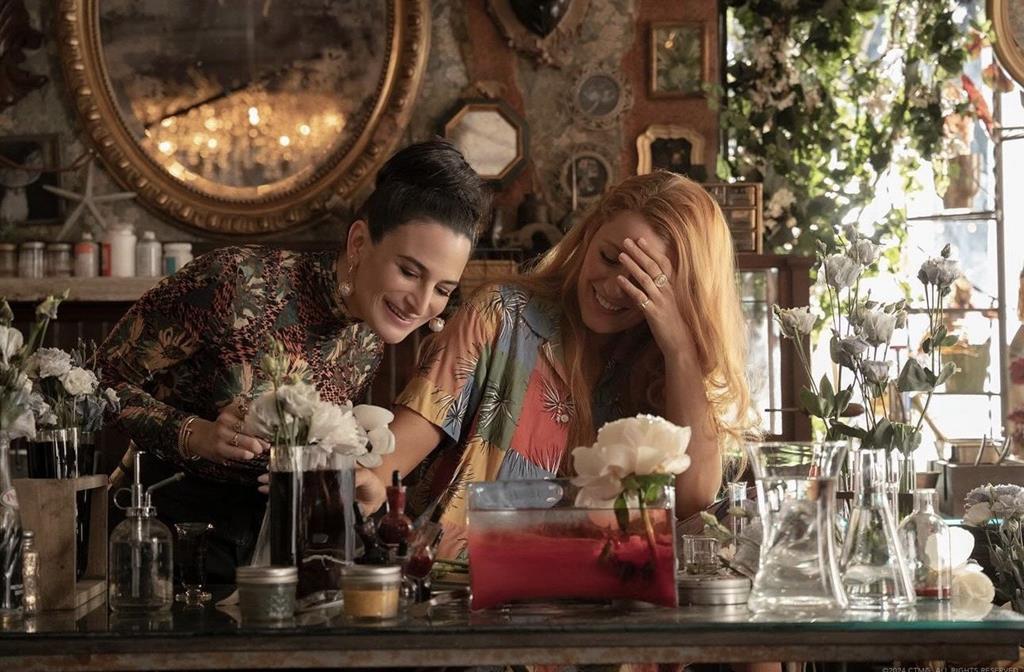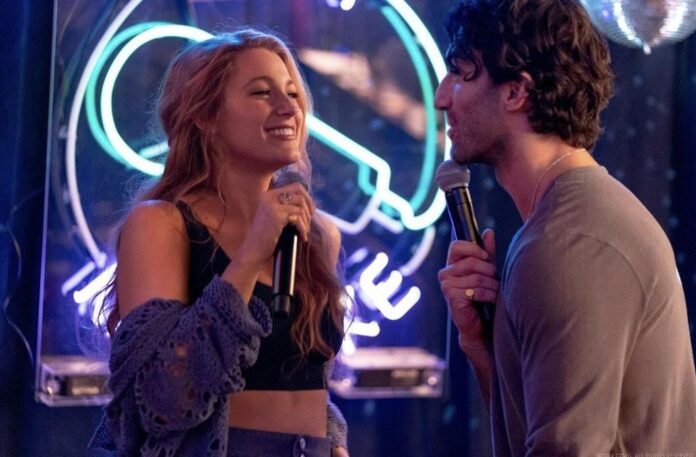If I had to write five things I liked about It Ends With Us (2024), I’m afraid it would look the same as Lily’s list for her father’s eulogy.
Since I had already read the book, I’ll admit going into this movie I had some preconceived notions, mostly about the casting; I knew the characters weren’t going to be at all how I pictured them (not to mention the costume design). The media coverage also played a hand in colouring my view, yet, I went in trying to keep an open mind. I reminded myself that movies are severely rushed compared to their literary counterparts, but there were storylines missing here that I just couldn’t ignore.
As for the lead, Blake Lively… I always thought she seemed fun, and sure I was a bit jealous of her hair — and her husband — but do I think she was the right fit for this role? Absolutely not. When you are given an entire novel to base a character around, it becomes almost lazy not to embody and represent that character to the very best of your ability. I don’t believe Lively did Lily justice. She seemed out of touch with the character, especially because her co-stars, Justin Baldoni (who plays Ryle Kincaid) and Brandon Sklenar (playing Atlas Corrigan), did so well that the contrast, to me, was clear.
Baldoni truly embodied his character — the way he was able to completely change his demeanour gave me chills, and there were several times I let out audible gasps. There was an anxious weight that Baldoni expertly carried after the initial incident of abuse, one that didn’t leave until the end. The overall feeling brought a tension into the theatre that was palpable; people had their hands covering their mouths, with others sinking deeper into their chairs; not one word was spoken throughout the entire film.
Spoilers ahead
One of my biggest beefs was with the portrayal of Atlas Corrigan, Lily’s childhood love that reappears in her life, who felt more like a side character. For such a significant piece of the plot, he was barely in the film. Sklenar portrayed strong emotion in his limited screen time and I wish he had been more present throughout.
I do appreciate a good foreshadowing moment, and the early signs of aggression Ryle showed when he spoke to Lily (the way he grabbed a cup out of her hand!) gave me just that. Not to mention “Nothing’s Gonna Hurt You Baby” by Cigarettes After Sex playing over the montage of Lily and Ryle’s falling in love — a perfect, yet tragic, paradox.
One thing they got wrong with Ryle, apart from him already being an unreasonably attractive neurosurgeon (unbelievable), was that he is portrayed as a man who is charismatic and caring. The novel had shown an intensifying pattern of violence from him; gaslighting Lily and becoming racked with jealousy. I understand if they decided to tone it down for the viewers’ sake, however the book has indefensible violence toward Lily, whereas in the movie, each of the incidents did not come across as obvious acts of violence (which they undoubtedly were) until the end.
The movie itself, I believe, portrayed an inaccurate representation of what it means to be in a circumstance such as this one. From Ryle abruptly disappearing after Lily leaves, to Lily’s character lacking any depth, it depicted a situation that was too simple to break free from. Executive Director of Women’s Shelters Canada, Anuradha Dugal, said that the “movie’s story skips over difficult aspects of leaving an abusive relationship.”

Subsequently, the abuse is part of the romance, begging the question if this further romanticizes domestic violence. It was hard to tell that this was even a movie about domestic violence from the initial trailer and the PR. The clips showcased a lovey-dovey couple washed in warm light with snippets of flirting and kissing, and only minor instances of Ryle lashing out or Lily looking at her bruises. A similar situation occurred with the movie 365 Days (2020), a film that essentially romanticized kidnapping, which led to a stream of young people online posting about abuse and kidnap fantasies.
This could have, and should have, been a shift in how we promote movies and educate younger, vulnerable audiences — to educate them on the early signs of abusive relationships and more importantly, offer tools on how to get out. In Canada alone, “44 per cent of women and girls — that’s almost half — report violence at the hands of a partner in their lifetime.” These are the statistics we should be focusing on rather than making light of serious matters.
The contrast of Lively and Baldoni speaking about the film to the press is disconcerting; there seemed to be two separate agendas. Baldoni really shows his care for the movie, and more importantly its message. In an interview, Baldoni said the one thing he wants people to take away from the film is hope and that “everybody has the ability to end a cycle that they didn’t ask for.” He’s done right by promoting awareness and support for domestic violence victims, whereas Lively comes across as a bit ignorant — like she hasn’t even read the book— using promotional time to plug her new haircare line, answering serious questions with jokes, and telling fans to “grab your friends, wear your florals, and head out to see it!”
The message of this film is important — ending the cycle of violence. It Ends With Us had the potential to be powerful, and even with over two hours of time and a ready-made plot, the film still managed to fall short.


